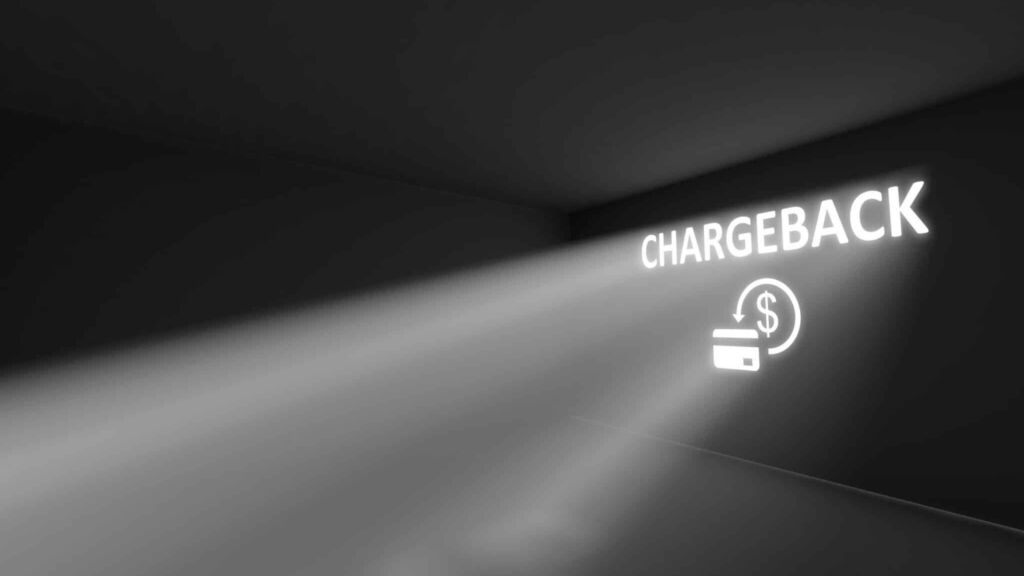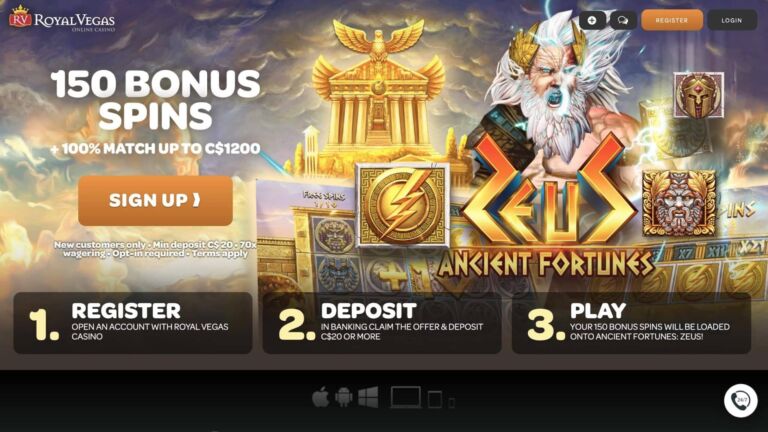Facing chargebacks in the online casino industry can be daunting and nerve-racking for players. Be they seasoned users or novices, understanding their rights and the entire chargeback process is vital to safeguard financial interests and maintain transparency in the digital gaming space.
Chargebacks Explained for Online Casinos
Essentially, a chargeback serves as a protective measure for consumers, letting them contest a transaction via their bank or card provider. In online casino scenarios, it's a request to reclaim money moved from a player's account to the casino's. These aren't meant as remedies for players disheartened by losses but for authentic disputes like unauthorized charges or failures in service.
Online casinos find chargebacks particularly challenging due to the potential financial ramifications and reputational damage. As a result, they have systems in place to tackle and dispute chargebacks, necessitating that players are adequately equipped to handle such situations effectively.
Typical Chargeback Reasons from Players
Chargebacks initiated by players stem from several reasons, legitimate and otherwise. Knowing these is key for players and casinos to resolve issues fairly. Valid reasons might be out of the player's hands or infringe on the terms agreed upon. Prominent reasons include:
- Unauthorized Transactions: This is the most legitimate reason when players notice unexpected charges they didn't make, which could be due to hacking, identity theft, or billing errors.
- Billing Mistakes: Errors occur, such as duplicate charges or overcharges, like being billed $500 instead of $50 due to a system glitch, justifying a chargeback.
- Non-Delivered Services: More common in misrepresented game access or uncredited bonuses. If games are frequently offline or bonuses unfulfilled, a chargeback might be considered, although less common.
- Service Not as Advertised: Considered when services fall short of what's marketed, like unreachable 24/7 support or very slow payouts, making it hard to prove and often subjective.
Conversely, some players pursue chargebacks for dubious or even exploitive reasons. These attempts, frowned upon by casinos and payment gateways, usually fail. Examples include:
- “Friendly Fraud” or Abusive Chargebacks: When players initiate a chargeback after regrets over gambling losses, aiming to recover deposits unethically. Such actions can result in account bans and blacklisting.
- Misinterpretation of Bonus Terms: Chargebacks arising from misunderstanding bonus rules, like wagering requirements, are weak arguments if terms were agreed.
- Game Outcome Discrepancies: Games operate on chance, not valid grounds for chargebacks unless manipulation or errors are clearly demonstrated.
Step-by-Step Chargeback Guide for Players
Facing the chargeback process can be intimidating, but knowing the ins and outs enables players to manage disputes with confidence. Here's a detailed walkthrough from the player's angle:
- Identify the Problem and Collect Evidence: First, determine whether your chargeback need is legitimate. Unauthorized charge? Billing discrepancy? Collect proof, such as:
- Transaction Proof: Highlight transactions on your bank statement that are relevant.
- Account Activity on the Casino: Take screenshots that show deposit records, dates, bonuses claimed, and game history.
- Casino Correspondence: Keep emails or chats with casino support as these show attempts to resolve directly with them.
- Terms and Conditions: For disputes on bonuses or service descriptions, save copies of related policies or promos.
- Chronology: Mark significant dates like deposits, when the issue arose, and when communication with the casino occurred.
Solid evidence boosts your chance of winning a chargeback. Keep everything methodically documented.
- Attempt Resolution with the Casino First: Generally, it's smarter to try resolving directly with casino support before charging back. This shows goodwill and allows issues to settle without financial institution involvement. When contacting:
- Be Direct and Specific: Clarify the issue with specifics and dates. E.g., “Dispute a $100 charge on 15th February 2025 that seems unauthorized.”
- Detail Your Aim: Specify your solution. Want a refund or billing amendment?
- Include Evidence: Send copies of records and documentation you collected.
- Provide a Time Limit: Let them respond within a reasonable time, say 5-7 business days .
- Keep Records: Note the contact method, date, representative name, and save emails or chat logs.
Often this step resolves issues without escalating to chargebacks, but if unaddressed, you might need to proceed further.
- Start the Chargeback with Your Bank: If casino efforts fail, initiate a chargeback through your bank. Remember:
- Immediate Bank Contact: Don't delay; chargeback windows are usually 60-120 days post-transaction, and vary by card provider or charge reason.
- Adhere to Your Bank's Guidelines: Every financial institution, be it a bank or a card issuer, has a unique method for handling chargebacks. It's important to reach out to them—whether via phone, online channels, or in person—to get familiar with their specific requirements. They will probably provide forms that need to be filled out and specify the necessary information they require.
- Supply Comprehensive Evidence: Be sure to present all of the evidence you've collected in the initial stage. This should include transaction details, any correspondence you've had with the casino, and other relevant documents. Make sure to provide a clear rationale for your chargeback request and articulate why you consider it to be valid.
- Inquire About Temporary Credit: Ask if your bank offers a 'provisional credit,' which allows them to temporarily credit the amount in dispute while they carry out their investigation. While it's not always assured, requesting it could be beneficial.
Ensure you're prepared to effectively communicate your case to your bank. As the mediator in this situation, they need a thorough understanding of your issue to advocate on your behalf.
- Fully Support the Bank's Investigation: After you initiate a chargeback, your bank will launch an investigation into the claim. This process might involve reaching out to the casino's payment processor to gather additional information. It's crucial that you cooperate completely with the bank's investigation:
- Respond Swiftly to Inquiries: If your bank requests more information or documents, make sure to provide complete and prompt responses.
- Maintain Communication Logs: Keep thorough records of all interactions with your bank regarding the chargeback process, noting details such as dates, times, and the names of representatives you speak to.
- Keep Track of Timelines: Understand that chargeback investigations can be lengthy, sometimes stretching over weeks or even months. It's important to remain patient and continue to follow up with your bank at reasonable intervals if updates aren't forthcoming.
The bank operates as an impartial entity to evaluate the validity of your claim in light of the casino's counterarguments.
- Investigation Results and Casino Reactions: Upon concluding the investigation, your bank will render a decision.
- Chargeback Approved (Success): If the bank decides in your favor, the funds from the casino will be returned to your account permanently. Additionally, the casino may also incur fees from their own payment processor.
- Chargeback Rejected (Failure): In cases where the bank sides with the casino or finds the evidence insufficient, you won't get your money back through the chargeback. The bank will provide you with explanations for their decision.
Bear in mind that even if the bank initially grants a chargeback in your favor, the casino may object (known as 'representment'), furnishing their own sets of evidence for the bank's reconsideration. This could nullify the original win in the chargeback. Be prepared for this possibility, and remain engaged with your bank should further documentation or engagement be necessary.
Player Rights and Obligations When Engaging in Chargebacks
While players do possess rights concerning chargebacks, they also have responsibilities. It's crucial to strike a balance to utilize the chargeback process wisely and equitably.
Player Rights:
- Right to Dispute Unauthorized Charges: This is a central entitlement. You are not responsible for fraudulent activities affecting your account and can reclaim funds from unauthorized transactions.
- Right to Challenge Billing Mistakes: You are entitled to rectify billing errors and obtain refunds for overcharges or erroneous charges.
- Consumer Safeguard Laws: Chargebacks are supported by consumer protection laws meant to shield cardholders from unfair or deceitful practices. Although these laws differ by location, they generally provide a framework for resolving disputes.
- Fair Examination: Your bank or card issuer is obliged to conduct a just and unbiased assessment of your chargeback appeal.
Player Responsibilities:
- Engage in Good Faith: Chargebacks must only be pursued for genuine reasons, avoiding instances of 'friendly fraud' or contravening casino regulations. Misusing the chargeback option can come with severe repercussions.
- Attempt Direct Resolution First: As indicated earlier, contacting the casino directly is a prudent and often required step in the chargeback process. This demonstrates a genuine effort to amicably resolve the dispute.
- Deliver Honest and Precise Information: Ensure all details and evidence you provide to both your bank and the casino are truthful and accurate. Misrepresentations can damage your case and potentially lead to legal consequences.
- Familiarize Yourself with Casino Policies: Although this doesn't justify unethical behavior, players should endeavor to understand an online casino's terms and conditions, especially those pertinent to bonuses, payouts, and account protocols. Issues stemming from a misunderstanding of overtly stated terms are less likely to be successful.
- Vigilantly Monitor Account Usage: Regularly review your bank and casino account statements to promptly identify any anomalies or unauthorized transactions. Quick detection plays a vital role in successful chargeback attempts.
Executing Legitimate Chargebacks Efficiently
When you have a valid basis for initiating a chargeback, it's crucial to manage the process efficiently to amplify your chances for a favorable outcome. Here are essential tactics:
- Preserve Detailed Documentation: As previously emphasized, precise documentation acts as your key advantage. Organize records of all transactions, communications, screenshots, and applicable terms methodically. The extent of your documentation directly influences the strength of your case.
- Act Without Delay: Timeliness is critical. Launch the chargeback process immediately upon recognizing the issue, following unsuccessful attempts at resolving it directly with the casino. Adhere to strict chargeback deadlines.
- Communicate Transparently and Persistently with Your Bank: Provide a clear account of the situation to your bank, furnishing all supporting evidence and adhering strictly to their set procedures. Ensure consistency in following up and promptly responding to their requests.
- Concentrate on Facts Over Emotions: Present your argument factually without succumbing to emotional tendencies. Stick to pertinent evidence and lucidly lay out your reasons for the invalidity of the charge or shortcomings of the casino in delivering promised services. Avoid personal attacks and inflammatory language.
- Gain Insights on Reason Codes: Chargebacks are categorized by 'reason codes' used by banks and payment processors. Knowing the applicable reason code for your situation can bolster your case. Examples include 'unauthorized transaction', 'merchandise/service not received', or 'incorrectly charged amount'. Seek guidance from your bank to identify the most fitting code.
Challenging Unjust Casino-Initiated Chargebacks
While players frequently initiate chargebacks, casinos may occasionally do so, albeit less commonly. A casino might initiate a chargeback under allegations of breaches of terms, fraudulent behavior, or technical payout issues. If you believe a chargeback initiated by a casino is incorrect, you have a right to contest it.
Addressing Casino-Driven Chargebacks:
- Clarify the Casino's Justification: Initially, seek to understand the reason behind the casino's chargeback. Reach out to their customer service for a comprehensive explanation and any accompanying evidence they might have. They are required to inform you of issues like 'bonus misuse', 'account manipulation', or 'technical discrepancies.'
- Cross-Verify Casino Guidelines: Conduct a careful review of the casino's terms to determine if their rationale for the chargeback stands valid according to their declarations. Scrutinize sections addressing bonuses, fair gameplay, account usage, and payouts.
- Compile Your Evidence: Similar to player-initiated chargebacks, gather your proof to counter the casino's assertion. This may include:
- Account Activity Details: A history of casino account activities showing your gameplay, applied bonuses, deposits, and withdrawals.
- Correspondence with the Casino: Documentation from any interactions with the casino contradicting their claim or that substantiate your stand.
- Adherence Verification: If accused of 'bonus misuse', collect evidence of compliance with bonus conditions (for example, screenshots reflecting completed wagering requirements).
- Engage Your Payment Provider: If the casino effectuated the chargeback through your transactional intermediary (such as an e-wallet or bank), converse with them directly to dissent the chargeback. Furnish them with proofs and present your reasoning against the casino's decision.
- Consult Legal Expertise: Depending on the gravity of the case or perceived injustices by the casino, consider seeking legal counsel from professionals specializing in online gambling or consumer rights.
Countering a casino-initiated chargeback might be more intricate, yet it's imperative to safeguard your rightful winnings if you assert the chargeback lacks justification.
Preventing Chargebacks: Optimal Practices for Players
Prevention should always take precedence over resolution. Although valid chargebacks remain necessary at times, players can undertake measures to reduce the odds of encountering situations triggering disputes:
- Select Well-Regulated and Trustworthy Casinos: Engage with online casinos that possess official licensing by credible regulatory bodies in the gambling sector. Licensing is indicative of adherence to certain fair operational standards. Check for licenses from bodies such as the Malta Gaming Authority (MGA), the UK Gambling Commission (UKGC), or other esteemed licensing organizations.
- Fully Grasp the Terms and Policies: It's crucial to thoroughly familiarize yourself with the terms and conditions, bonus-related rules, and withdrawal processes when engaging with any online casino. Focus especially on understanding wagering demands, limits on withdrawals, and the protocol for account termination.
- Understand Bonus Conditions Clearly: While bonuses can appear appealing, be sure to fully comprehend their terms, focusing on wagering stipulations, which games are eligible, and deadlines. Consult customer support if anything remains ambiguous before accepting any bonus offer.
- Track Your Transactions and Conversations: Keep a well-organized log of every deposit, withdrawal, bonus claim, and any interactions with the casino staff. This documentation is essential if any conflict needs to be resolved.
- Select Safe Payment Options: Opt for reliable and secure payment methods for both putting in and taking out money. Stay away from options that could be easily exploited or those with questionable security.
- Adopt Responsible Gambling Habits: Practicing responsible gambling can help prevent chargeback issues indirectly. Maintaining betting within your financial limits and not trying to recoup losses impulsively can help avert circumstances where one might feel driven to request chargebacks out of distress.
- Regularly Review Your Accounts: Make it a habit to periodically inspect your casino and bank account statements to identify any unauthorized transactions or discrepancies quickly.
The Emotional Dimension of Chargebacks
Chargebacks are not merely financial maneuvers; they can also deeply affect players' moods. The mechanism can be taxing, fraught with delays, and emotionally challenging, particularly when large sums are involved.
Emotional Impact:
- Dealing with Stress and Anxiety: Navigating the chargeback process, whether you're starting or opposing one, can be stress-inducing. The lack of certainty about the outcome and potential financial setbacks can be unsettling.
- Feeling of Frustration and Anger: It’s natural for players to feel upset and angry if they perceive they've been mistreated by a casino or if a legitimate chargeback request is dismissed.
- Erosion of Trust: Negative experiences with chargebacks can diminish confidence in the fairness of online casinos overall, even if the player eventually prevails in the dispute.
- Sense of Wrongdoing: Experiencing feelings of being wrongly accused or unfairly treated in chargeback disputes can cultivate a notion of injustice and dissatisfaction.
Coping Strategies:
- Maintain Composure and Objectivity: Although emotions are understandable, aim to stay composed and objective during the chargeback proceedings. Concentrate on the facts and evidence rather than on emotional reasoning.
- Seek Out Support: If overwhelmed or stressed, converse with a trusted confidant—a friend, family member, or a gambling support group. Sharing your experience can be beneficial.
- Aim for Resolution, Not Retribution: Engage in the chargeback process with a view towards an equitable resolution rather than seeking vengeance. This aids in sustaining a constructive attitude.
- Extract Lessons from the Process: Regardless of the final result, perceive the chargeback journey as an educational opportunity. Contemplate what could have been done differently to avert the problem and apply these insights in future engagements.
- Accepting Losses as Entertainment Costs Sometimes: Occasionally, even with the best intentions, a chargeback may be denied despite seeming valid. While disheartening, it's sometimes necessary to accept such losses as part of entertainment expenses, particularly if the sum is minor and further pursuit would cause undue stress. For larger sums or clear misconduct, however, perseverance is justified.
Conclusion: Navigating Chargebacks in Online Gambling with Assurance
For a player in the realm of online casinos, effectively managing chargebacks requires acquiring knowledge, preparing well, and understanding your own rights and duties. Though chargebacks act as a protective consumer mechanism in genuine disputes, they aren't alternatives to responsible gaming nor assured solutions for recuperating funds. By familiarizing oneself with the chargeback processes, keeping comprehensive records, and acting honorably, players can tackle these situations with increased confidence and shield themselves from unscrupulous dealings. Remember, being well-informed and practicing responsible gambling are always superior strategies. However, when legitimate disagreements surface, having the ability to manage a chargeback efficiently is an invaluable skill for any online gambler.
External Resources:



